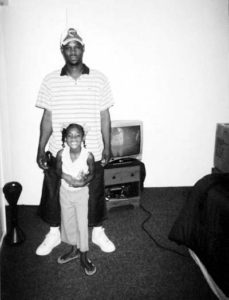By M.G. Houzeau
Late last year, three police officers (out of five) were convicted in connection with the murder of an innocent man, Henry Glover, and its cover-up days after Hurricane Katrina. The cover-up included burning a car near the levee in Algiers (across the river from the French Quarter) with Glover, possibly alive, inside.
David Warren, the freshman officer who shot Glover in the back, received a 25 year sentence in Federal Prison for manslaughter. Greg McRae, who burned Glover’s body in a friend’s car on the levee, received 17 years for destroying evidence and perjury in front of a Grand Jury. The jury from the 2010 trial determined the convictions and U.S. District Court Judge Lance Africk handed out the sentence lengths.
While the U.S. District Attorney Jim Letten, whose office prosecuted the police officers, characterized the sentences as “significant prison terms,” the Glover family was not satisfied. Rebecca Glover, Henry’s aunt, spoke outside the courthouse directly after the sentences were announced. “I was expecting David Warren to get life. And McRae to get more time than 17 years. ‘Cause if I burn you I’m gonna get more than 17 years,” Ms. Glover said indignantly. “It’s a joke and I’m very very upset about it.”
 Glover’s skull is still missing from the body recovered from the burned out car. William Tanner owned the burned out car, which he first used to seek medical help for Glover after he was shot. Tanner believes the skull was stolen intentionally to prevent evidence from being discovered about a point blank shot to Glover’s head. Tanner was beaten by police that day before police drove off with his car. He thought Glover was still alive.
Glover’s skull is still missing from the body recovered from the burned out car. William Tanner owned the burned out car, which he first used to seek medical help for Glover after he was shot. Tanner believes the skull was stolen intentionally to prevent evidence from being discovered about a point blank shot to Glover’s head. Tanner was beaten by police that day before police drove off with his car. He thought Glover was still alive.
When a reporter asked Ms. Glover if she had closure, she responded, “I still want his skull. We still do not have his skull. We’ll have a little closure [then]. We only buried part of a body.”
While the newspapers, particularly the Times-Picayune, finally covered the trials and re-investigated the original incidents with the attention they deserve in 2010 and 2011, most social justice organizers remember when no one believed the family’s side of the story. And the media never took them seriously enough to independently investigate the claims.
Safe Streets/Strong Communities, an organization formed after the hurricane to address brutality and other unaccountable behavior by the police, were visited in their office by friends or relatives of victims who shared their stories and sought support for justice. Many stories of brutality, including Henry Glover’s case, were included as testimony in the little-remembered, but sweeping International Tribunal on Hurricanes Katrina and Rita. The four-day tribunal was hosted by the New Orleans Black-led organization Peoples Hurricane Relief Fund on the Katrina Commemoration in 2007.
With the support of Safe Streets, the Madisons, who lost a family member in the Danziger Bridge murders, organized and pressured the New Orleans District Attorney to file criminal charges against the police officers in local criminal court. Not surprisingly, Judge Raymond Bigelow found a way to dismiss the charges, finding prosecutorial misconduct during the Grand Jury process. Almost immediately, Jim Letten’s U.S. District Attorney’s office started their own much broader investigation, which included an FBI raid of the New Orleans Police Department to seize files.
A year later a team of FBI agents fully investigated that barbaric incident on the bridge connecting Gentilly and New Orleans East. Six police were indicted in the cover-up, four whom face charges for the murders of two unarmed African-American men. Their trial in Federal Court is still pending, but if convicted they could face life in prison or even the death penalty.
Unable to shake the image of this stranger shot and driven off by police, William Tanner approached Safe Streets for support and justice for the murder of Glover.
When Safe Streets heard from A.C. Thompson, a journalist with ProPublica and The Nation, they directed him to William Tanner. Thompson included the cover-up of Henry Glover’s death in his long investigative article in late 2008 on white vigilantes who murdered African-Americans in Algiers in the weeks after the hurricane. The report brought national attention and regained local momentum to seek justice for everyone murdered in that “time of crisis.”
The lesson is clear: never stop documenting injustice and speaking truth to power, for its effects and impacts may influence people you least expected. The FBI seeking justice for a few black people in America? Proactively prosecuting nearly a dozen white police officers? Relentless organizing to expose the truth of the NOPD to the public made the FBI’s investigation a safe choice.
Legal action, however, has its structural limitations. There’s the “bad apple” theory, where only the most destructive individuals are picked out for indictment. Questions arise about transforming the culture of the NOPD but always blow over until the next murder at the hands of police. From where will the spark come to address the root causes of unequal power accorded police in American society? And the courage to implement and fund alternatives that will make the need for police obsolete? Now that’s the terrain for lifelong relentless organizing that we all must participate in if we are ever to find the beloved community.
Share